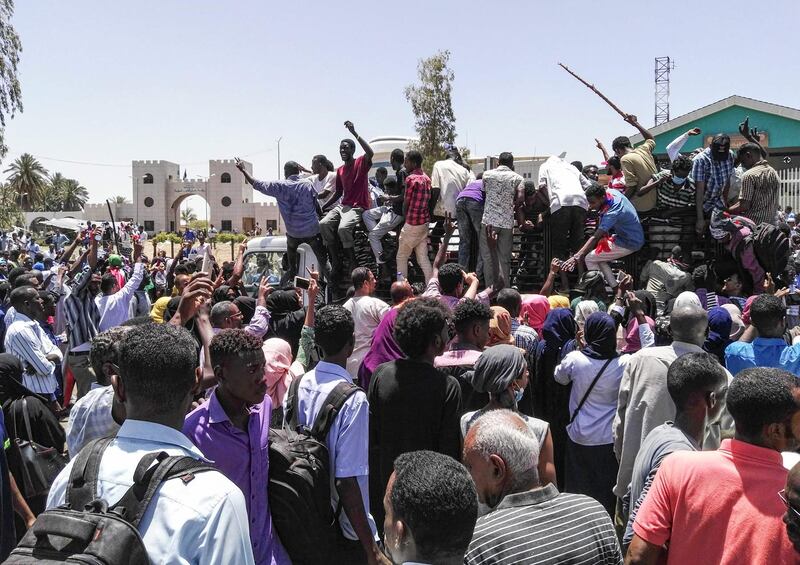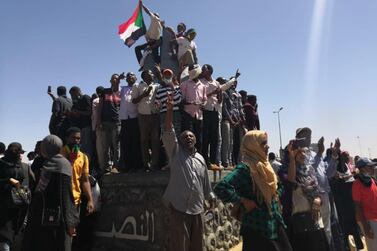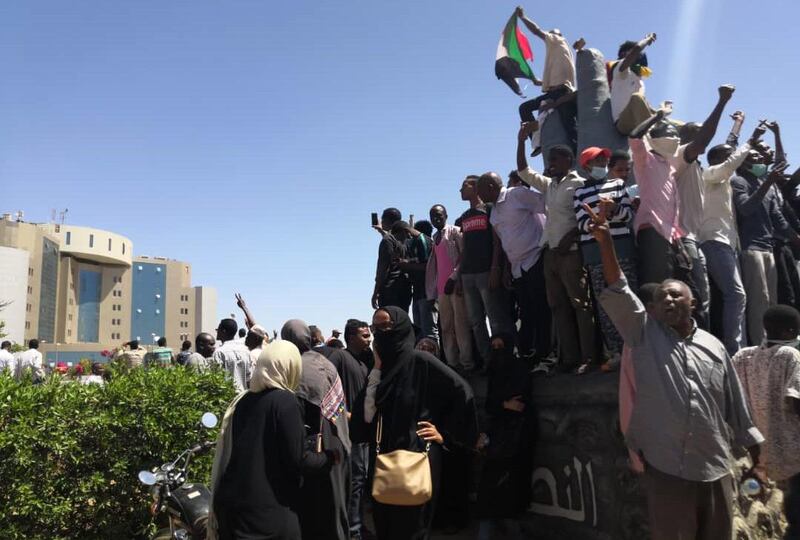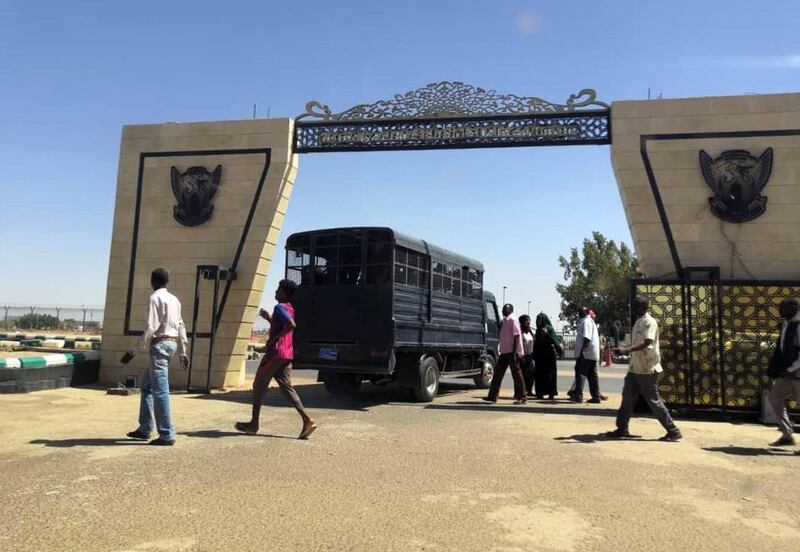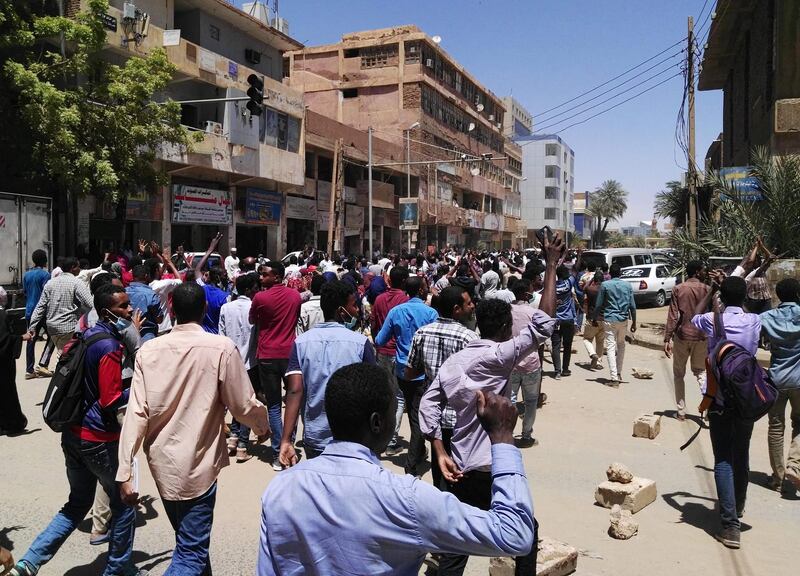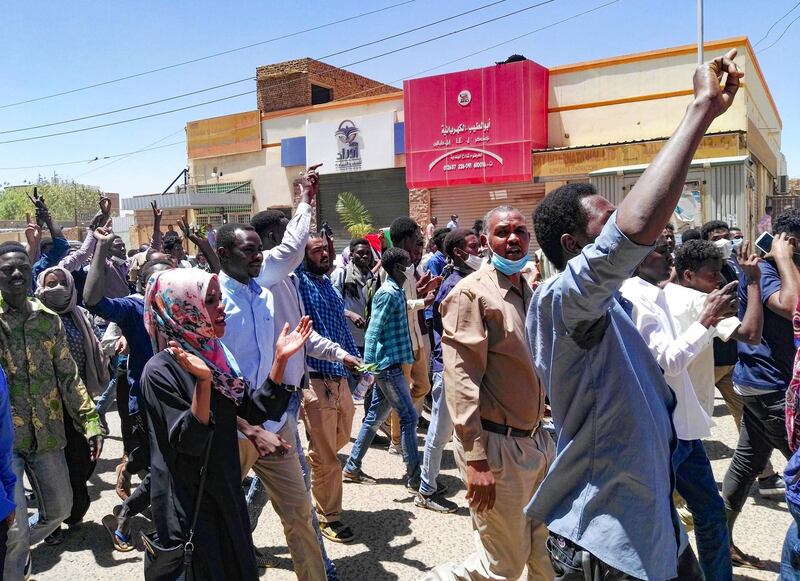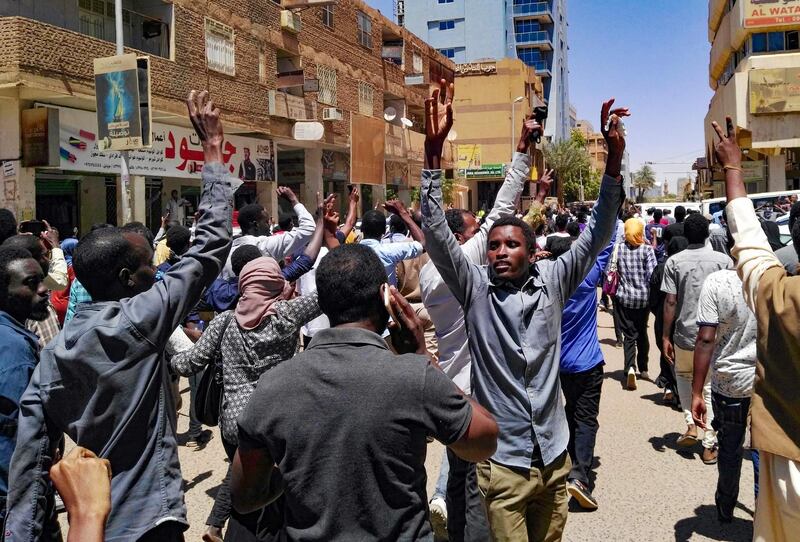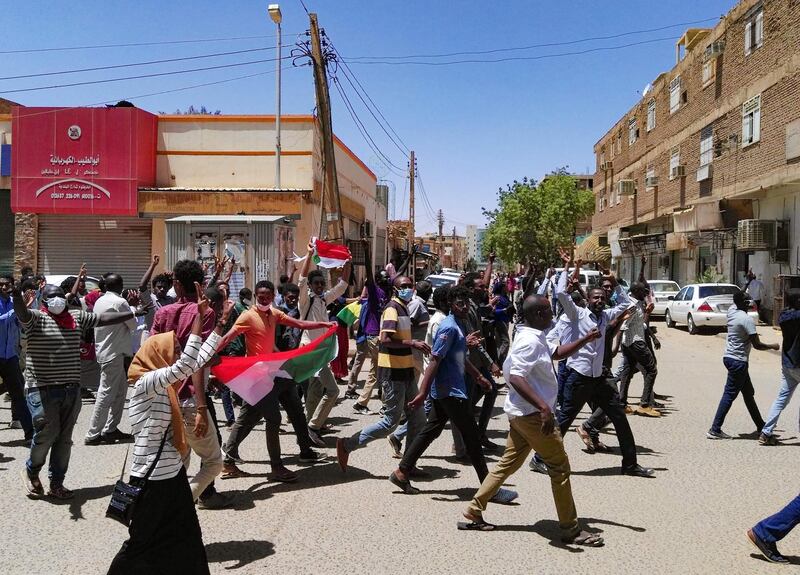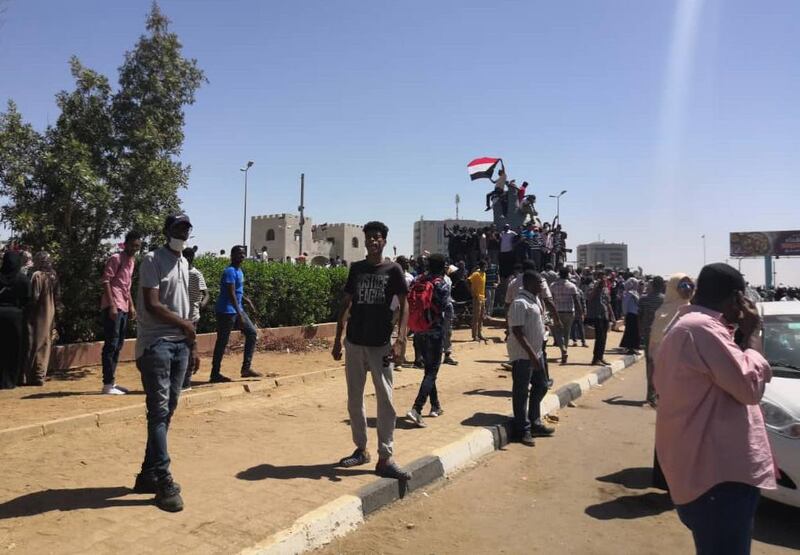A Sudanese soldier was killed trying to protect protesters from the country's security forces on Monday, as reinvigorated protests calling for the resignation of Omar Al Bashir entered their third day.
The army were deployed around their headquarters in the capital as thousands urged the military to support their uprising in one of the biggest demonstrations since the protests began in December.
Security forces used tear gas, rubber bullets and live fire, according to demonstrators, and one soldier was killed while trying to protect protesters, witnesses told the Associated Press.
Video posted online by activists showed a truck carrying a group of soldiers, including one who was wounded. Protesters chanted: "If he lived, he is a hero, if he died, he is a martyr."
It appears that the army may be intervening to prevent clashes between protesters and the police, a scenario that played out in neighbouring Egypt in 2011 before longstanding President Hosni Mubarak was forced to step down. But with media access to protests heavily restricted in Sudan, the situation remains unclear.
The Sudan Doctors Committee – which is a member of the Sudanese Professionals Association, the umbrella group which is spearheading the demonstrations – said another man died elsewhere in Khartoum after being beaten and tortured by security forces.
The protest outside the army headquarters follows yesterday's sit-in outside the president's residence, with protesters camping there in tents since Saturday.
Officials say 31 people have died in protest related violence so far, but Human Rights Watch has put the death toll at 51, including children and medics.
Sudan’s military, which previously overthrew President Jaafar Nimeiri following an uprising that began on April 6 1985, has yet to officially respond to demands to back the protesters.
The civil unrest initially began due to the soaring cost of living, but has widened to call for the resignation of Mr Al Bashir, who has ruled since 1989.
The British ambassador to Sudan Irfan Siddiq said on Monday that demands for change from protesters were "serious and legitimate" and called upon the country's governemnt and security forces to respect peaceful protest as a fundamental right. "The world is watching," he tweeted.
Demands for change from #Sudan protesters are serious & legitimate. Must be respected by government & security forces. Peaceful protest a fundamental right. Violence must not be used to disperse the protests, nor should provision of food & water be blocked.The world is watching.
— Irfan Siddiq (@IrfanUKAmb) April 8, 2019
The protests gained momentum last week after Algeria's President Abdelaziz Bouteflika, in power for 20 years, resigned in response to weeks of similar protests.
Last month, Mr Al Bashir imposed a nationwide state of emergency to quell the protests after an initial crackdown failed to rein them in. He has introduced tough measures that have led to the arrests of protesters, opposition leaders, activists and journalists.
Since emergency rule came into effect, the demonstrations have been largely confined to the capital and its twin city of Omdurman.
